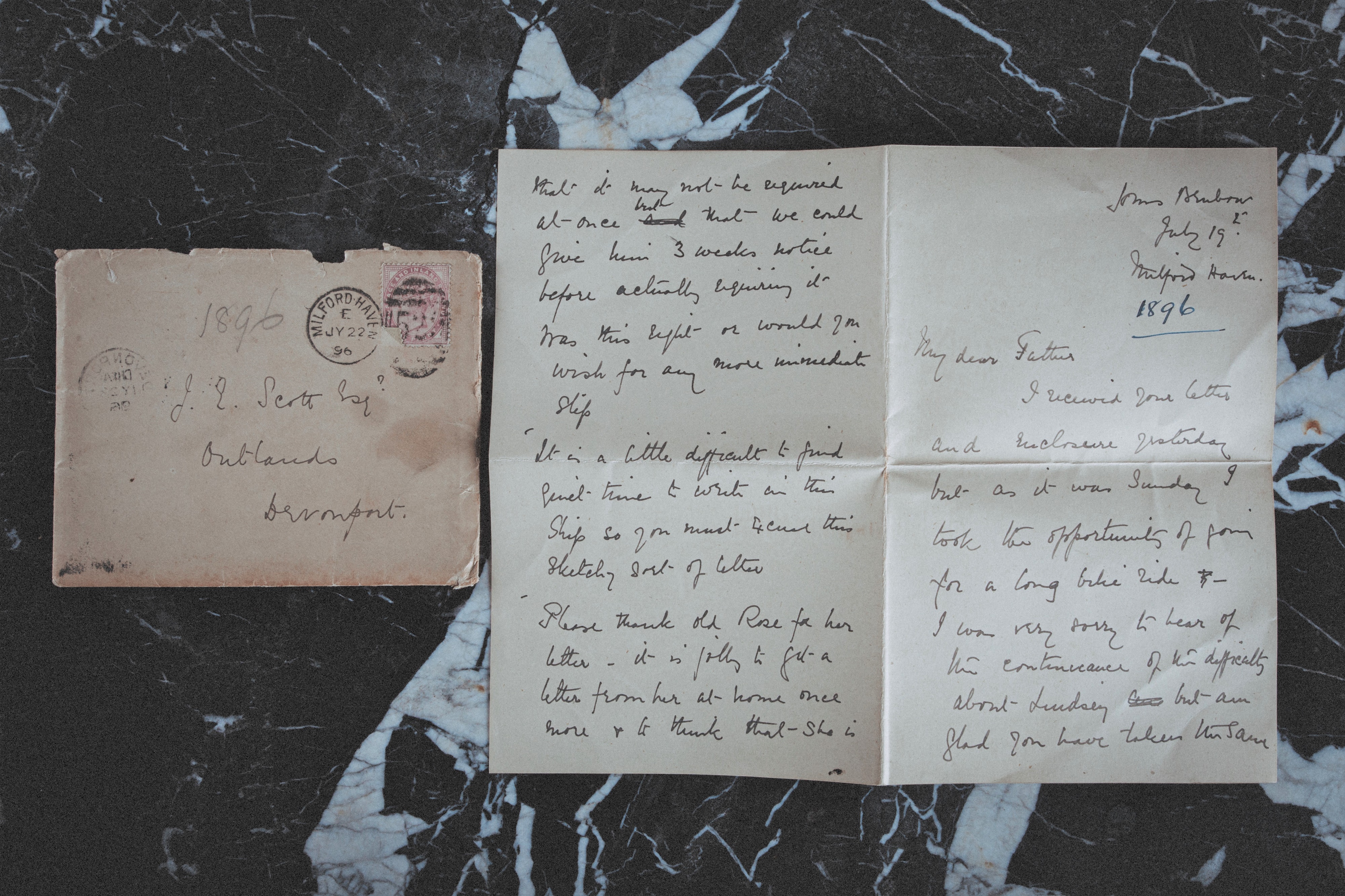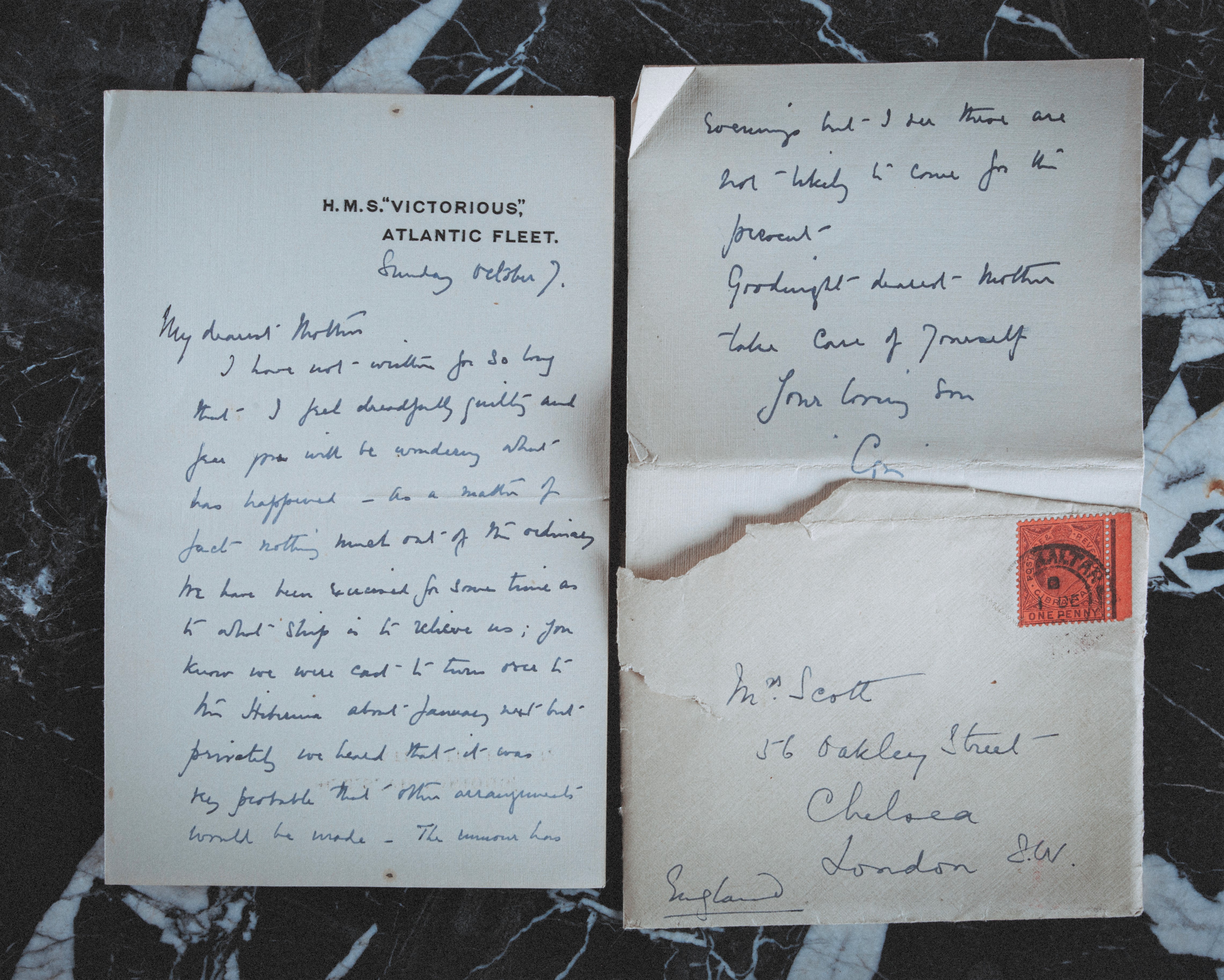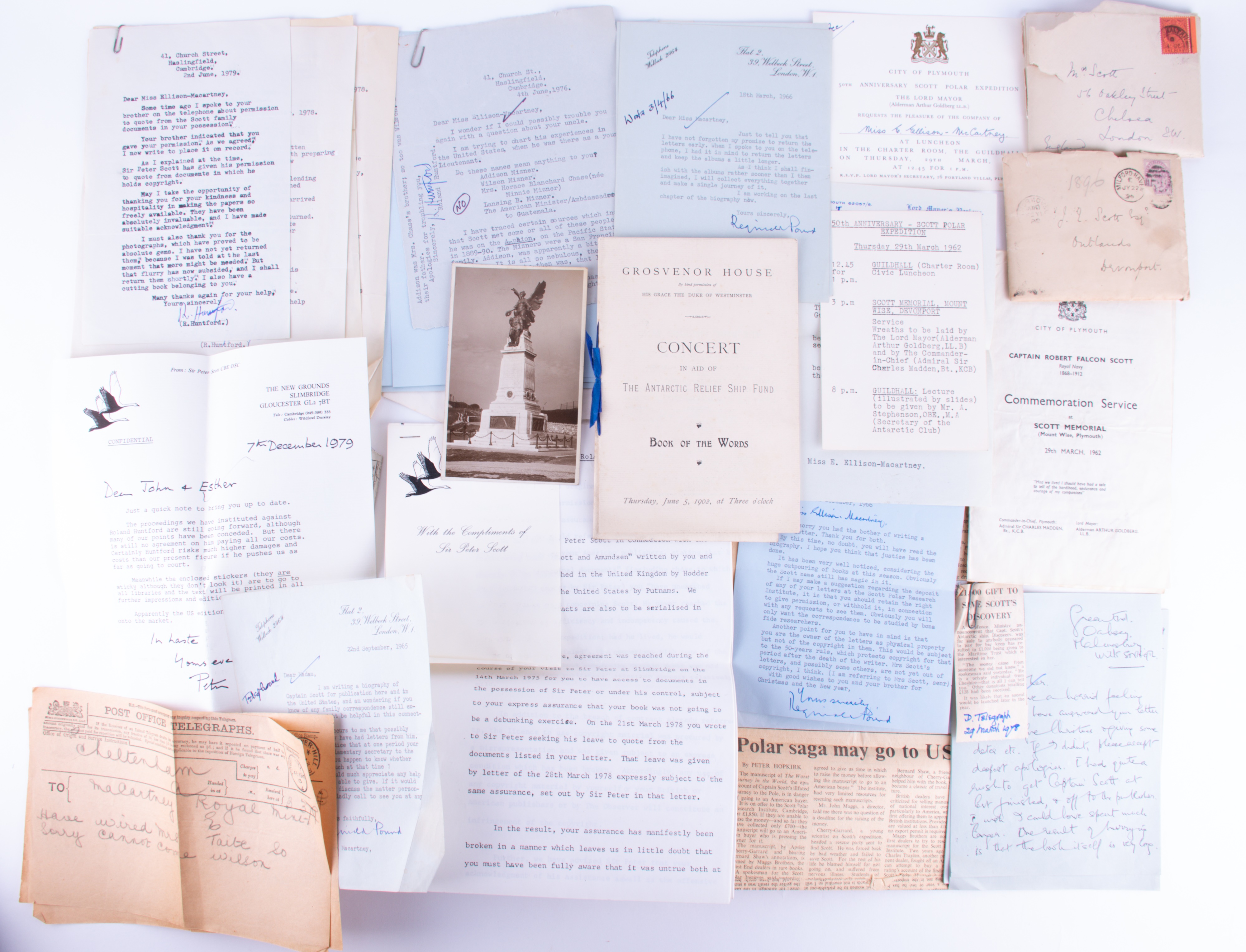
Dawsons Auctioneers were delighted to offer a remarkable collection of original correspondence relating to Robert Falcon Scott CVO (1868-1913), in our August 27th 2020 sale. Spanning almost an entire century, the contents included handwritten letters from Scott to his family, dating from 1896 and 1906, a bound set of condolence letters and telegrams to his mother after his death (from amongst others, Buckingham Palace, his close friend J.M. Barrie and Scott’s long-term mentor and sponsor, Sir Clements Markham). Later documents included letters from his son, Sir Peter Scott (1909-1989), and correspondence from Roland Huntford, author of a controversial 1970s book on Captain Scott.


.jpg)